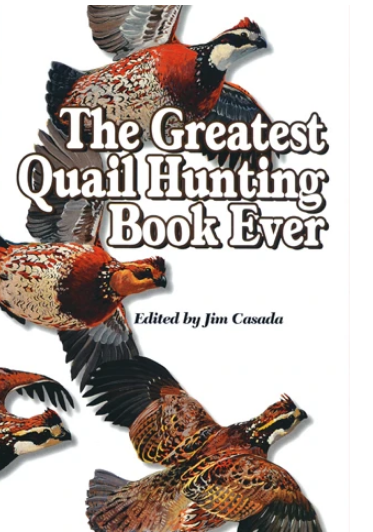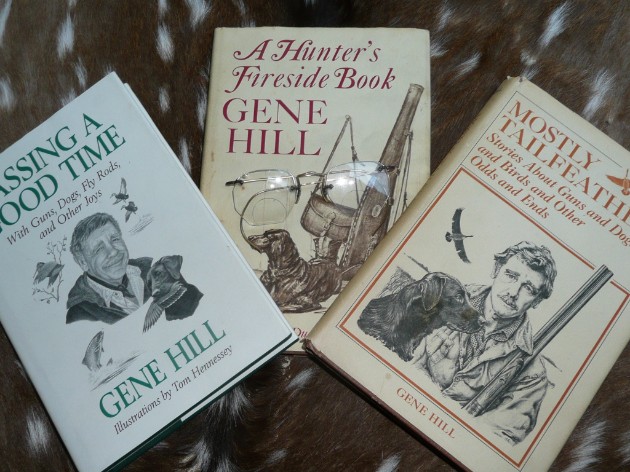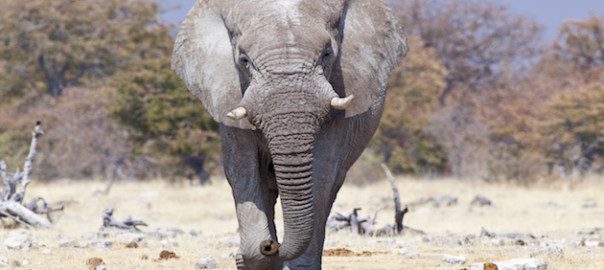Sportsman Gene Hill could take the simplest of subjects and turn them into literary magic with a blend of wit, whimsy and wisdom.
One or twice in a generation an outdoor writer comes along who has an uncanny ability to capture in words what his fellow sportsmen sense and savor yet find almost impossible to describe to others. Gene Hill (1928-1997) was masterful, to a degree matched by only the likes of Havilah Babcock and Robert Ruark, in this regard. To those who know a bit about his background—a New Jersey lad who was Harvard educated and initially earned his livelihood as an advertising copywriter—Hill’s discovery of his true métier as a sporting scribe seems quite unlikely. Yet fairly early in adulthood the occasional spate of freelancing gave way to a full-time career in the outdoor field, and over the years he served as a columnist for several magazines.
Today he is best remembered for “Tail Feathers” in Sports Afield and “Hill Country” in Field & Stream. While he wrote numerous full-length features, Hill’s greatest genius lay with short, pithy columns that seized the reader’s soul. He could take the simplest of subjects, such as an old hunting jacket or a session of armchair adventure before a blazing fire in the depths of winter, and turn them into literary magic with a blend of wit, whimsy, and wisdom.
Blessed with a genuine gift for friendship which shines through in his writing, Hill’s literary star perhaps shone brightest when he wrote on the bird hunting experience.
“I cannot imagine living in a house without a couple of dogs,” he once wrote. Without them, “my nights would be more restless and the demons that wait in the dark for me would be less easily fended.” He reckoned that nothing “brings me closer to tears than when my old dog—completely exhausted after a hard day in the field—limps away from her nice spot in front of the fire and comes over to where I’m sitting, puts her head in my lap, a paw over my knee, closes her eyes, and goes back to sleep. I don’t know what I’ve done to deserve that kind of friend.” No doubt experiences of that sort explain why Hill believed “we never really own a dog as much as he owns us.”
Thinking along those lines, one of Hill’s most repeated quotations captures the essence of the bond between dog and man: “No one can fully understand the meaning of love unless he’s owned a dog. A dog can show you more honest affection with a flick of his tail than a man can gather through a lifetime of handshakes.”
Similarly, Hill appreciated the unique joy hunting dogs bring to the lives of their owners.
“Whoever said you can’t buy happiness forgot little puppies,” he opined. Or who among us can fail to appreciate the sheer joy of “being loved unquestionably, totally, and irrevocably” by a dog?
Hill’s columns comprise a heady, heavenly mix of ingredients, such as simple happiness, nostalgia, rejoicing in fine shotguns and finer friends, waxing eloquent on an enduring love affair with Texas, or reliving the rarified atmosphere of a remote hunting camp. Nor was he in any way lacking when it came to dispensing humor. Anyone who has battled a severe case of the scattergun blues can readily identify with him when he wrote: “If there were a great and all-seeing Seer of Shotgunning, you could seek him on his mountaintop and ask, ‘Why do I hit the hard targets and miss the easy ones?’” Similarly, what hunter hasn’t experienced thoughts along the line of “You know what the ideal gun for any given day is? Your other gun—the one you left home in the closet.”
The short, tightly written columns which were Hill’s specialty often disappear from the literary radar not long after their appearance. Thankfully, such was not the case with most of Hill’s best writing. Scores of his columns, along with other examples of his work, are found in more enduring and accessible form in a fine bevy of books. These include: Mostly Tailfeathers, A Hunter’s Fireside Book, A Listening Walk, Hill Country, Shotgunner’s Notebook, Passing a Good Time, Sunlight and Shadows, Tears and Laughter, and The XVth Day (his rarest book; most are readily available). He also contributed chapters to a number of works, edited others, wrote numerous forewords or introductions to publications by Jim Rikhoff’s Amwell Press, and was a part of collaborative projects.
To join Gene Hill vicariously for a walk in the woods, a day afield after quail or grouse, lifting a convivial glass at day’s end, or amidst the casual camaraderie of a hunt camp is to move in realms of wonder. He was a man who sampled and savored the important things in life, many of them simple, with great gusto. Thanks to the nature and strength of his writing, he invariably made us a part of the experience.
A passage from Hill Country provides moving insight into the things he cherished most.
“A hunting camp is one of the few places left to us where we can dream of a near-perfect tomorrow. Where the harsh realities of lost riches and faded glories can be forgotten and the dreams of what might be come down to a delightful day with not too much wind, a crisp morning silvered with frost, and find us—at long last—with the right gun, shells, dogs, and friends who will be pleased for forever to remember ‘the day we did it all.’”
Each of us should have memories of such a day, and the genius of Gene Hill was that he could give it to us and remind us that such times exist.
He filled life’s game bag with not merely one but a limit of such days. His admonition on how to handle the transition from one season to the next—“Soak it up, go into it softly and thoughtfully, with love and understanding, for another year must pass before you can come this way again”—might well stand as a sportsman’s credo, not just for a year, but for all his years.
 The 368-page book opens with compelling tales by the literary giants from quail hunting’s golden era, including Nash Buckingham, Robert Ruark, Havilah Babcock, Archibald Rutledge and Horatio Bigelow.
The 368-page book opens with compelling tales by the literary giants from quail hunting’s golden era, including Nash Buckingham, Robert Ruark, Havilah Babcock, Archibald Rutledge and Horatio Bigelow.
The book’s second section presents reminiscences by sporting scribes of the modern era, among them Jack O’Connor, Gene Hill, Joseph Greenfield, Dave Henderson and Mike Gaddis. The third section is comprised of unforgettable short stories on quail hunting and bird dogs by James Street, Bob Matthews, Dan O’Brien and Caroline Gordon.
Will the sweet sound of whistling wings, the heart-stopping beauty of a sunset point, the timeless partnership of a man and a dog wise in the ways of wild birds ever return? Perhaps, but for now we can rejoice in the fact that we can, through the writings of some of the finest sporting scribes America has ever produced, experience those golden days vicariously. Buy Now




